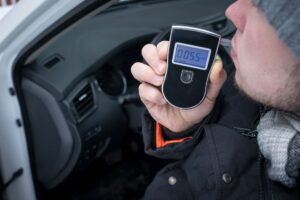Much of the time, DUIs are recognized as driving under influence, or driving while affected by alcohol. Conversely it is winding up gradually simple for officers to manage field sobriety tests for drugs other than alcohol. Medications, for example, benzodiazepines, cocaine, marijuana, and amphetamines can influence your engine abilities, response time, and mindfulness, which make tranquilized driving a communal risk.
“Per Se” Laws
The laws concerning to medicated driving differ from state to states. Many states, for example, Arizona, Georgia, Indiana, Illinois, Iowa, North Carolina, Ohio, Pennsylvania, Rhode Island, Michigan, Minnesota, Nevada, Utah, Virginia, and Wisconsin, have passed “per se” laws, which are intended for keeping all kinds of impaired driving.
As per “par se” laws, it is unlawful for a man to be affected by any restricted medication, including recommendation and over-the-counter prescriptions, while driving.
Identifying Impairment
Innovation has made it soberly simple for a cop to decide when you’ve had extremely to drink. One blow into a breathalyzer and anything over.08 is unlawful, making you legally responsible of a DUI. Unluckily, recognizing impairment by substances other than alcohol is more troublesome. While field sobriety tests are directed to assess motor aptitudes, this technique is not a full verification approach to distinguish impairment from different medications.
With a specific end goal to address this issue, 44 states have executed Drug Evaluation and Classification Programs. These projects prepare cops to perceive drug intoxication by watching certain attributes in a man’s conduct and appearance. If an officer doubts drugs, a blood or pee test is taken for affirmation.
Impacts of Drunk Driving
Drivers utilize their hands, eyes, and feet to control the vehicle; however their hands, eyes, and feet must be controlled by their brains. Safe driving requires sharpness and the capacity to take action quickly in changing conditions. Drinking alcohol can profoundly affect driving aptitudes. For instance, drinking can negatively affect any of these aptitudes:
Response Time – Alcohol can moderate reflexes, which can diminish the capacity to respond quickly to evolving circumstances.
Vision – Alcohol can moderate eye muscle activity, modify eye movement, and
adjust visual sensitivity, potentially bringing about unclear vision. Night vision and color sensitivity additionally can be impaired.
Tracking – Alcohol can diminish the capacity to judge the vehicle’s position in the street as well as other vehicles, focus line, or street signs.
It is assessed that more than 10,000 youngsters in the United States are killed and 40,000 are harmed in car crashes when alcohol is involved. The National Highway Traffic Safety Administration assesses more than 26,000 lives have been spared since the drinking age was expanded to 21.
Results for driving while impaired differ significantly by state and can include both criminal and common penalties. In all expresses, a first-time DUI accusation is a wrongdoing, deserving of fines and up to a half year in prison. While many states will enable a driver to avoid imprisonment for a first-time offense, some do force a base prison sentence of a couple of days or weeks with a specific end goal to demoralize alcoholic driving. If this event happens to you, contact Dominic Saraceno.





